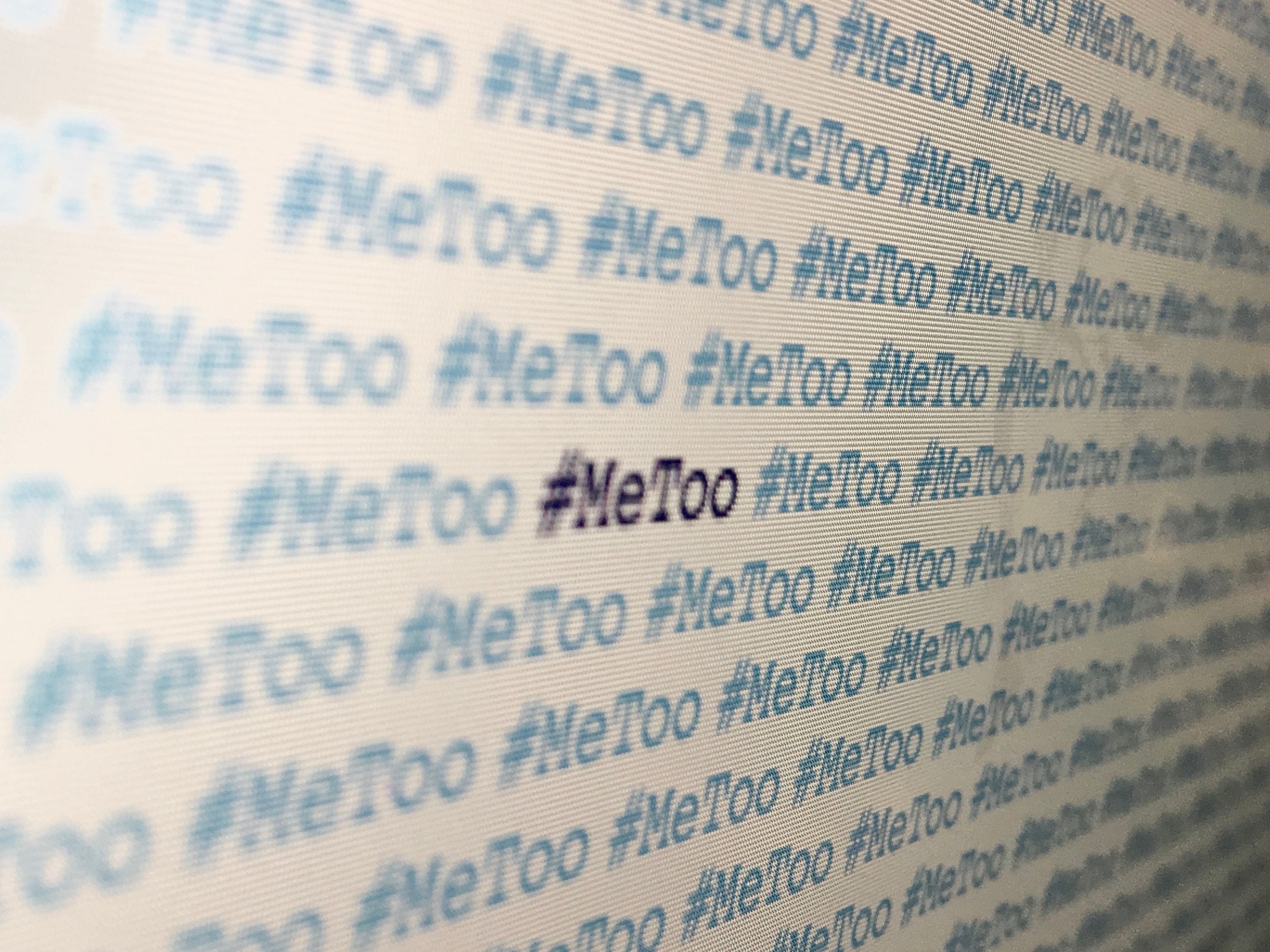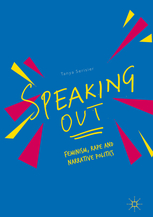Dr Tanya Serisier, Senior Lecturer in Criminology, recently authored Speaking Out: Feminism, Rape and Narrative Politics, a critical study of feminist practices of ‘speaking out’ in response to rape. At the launch of the book she was joined in discussion with Dr Kiran Grewal (Goldsmiths, University of London) and Alison Phipps (University of Sussex).

On October 15, 2017, the actor Alyssa Milano tweeted a response to the growing public revelations of film producer Harvey Weinstein’s sexually predatory behaviour. It read, in part: ‘If all the women who have been sexually harassed or assaulted wrote ‘Me too.’ as a status, we might give people a sense of the magnitude of the problem’. The tweet inspired a viral hashtag and a political uproar, with women across the world sharing their experiences of sexual violence in workplaces and elsewhere, with at least some of these stories leading to the public downfall of powerful men.
‘Me Too’ has been called a ‘movement of revelation’ and even a ‘revolution’, inspiring countless debates about sexual violence and the ethics of public accusations. What many public discussions shared, particularly in the first few months, was the sense that this was both revolutionary and unprecedented. A year later, however, there are growing questions about the long-term legacy of ‘Me Too’. Stories of sexual violence have become less prominent and several men exposed by these stories have begun to resurrect their careers. It has begun to feel that this moment might be less revolutionary than had been hoped or feared.
 In my book, Speaking Out: Feminism, Rape and Narrative Politics, I argue that the cultural power and limitations of events like ‘Me Too’ become clearer when they are placed within a feminist history of telling personal stories of sexual violence to achieve political change. As slogans like ‘Break the Silence, End the Violence’ from the 1970s suggest, feminists have been using the power of personal narratives to shift cultural and legal responses to sexual violence for over half a century.
In my book, Speaking Out: Feminism, Rape and Narrative Politics, I argue that the cultural power and limitations of events like ‘Me Too’ become clearer when they are placed within a feminist history of telling personal stories of sexual violence to achieve political change. As slogans like ‘Break the Silence, End the Violence’ from the 1970s suggest, feminists have been using the power of personal narratives to shift cultural and legal responses to sexual violence for over half a century.
My book traces this history from the first public speak-out against rape in 1971, held in a small church by the ‘New York Radical Feminists’ collective. At the time, even many feminists did not see sexual violence as a political issue, and so the speak out’s theme, that ‘Rape is a Political Crime Against Women’, marked a significant shift from a view of rape as simply the result of individual pathology. Despite the misgivings of some collective members, the speak-out attracted over 300 women, including journalists from Vogue and New York magazines. While ten women had planned to speak, the organisers were startled when thirty audience members joined them onstage to tell their own stories. These stories of personal experience inaugurated the feminist movement against rape, with speak-outs spreading globally, including to London in 1972.
“The book allows people to look beyond the current moment and ask critical questions about the strength and limitations of women’s public stories of their experience of sexual violence. It traces the history of this activism from the consciousness-raising groups and public speak-outs of the 1970s to the talk shows of the 1980s, books of the 1990s and social media activism of the 2000s.
“The launch discussed the book’s origins in my own experiences of feminist activism and rape crisis work in Australia, and my frustration with the limits and blindspots of some of this feminist politics. And this sparked the investigation of the book. The discussion at the launch was wide-ranging, exploring the difficulties of mainstream feminism in speaking to the experiences of women of colour and women from the global south and the problems with presuming that the criminal justice system is able to solve the problem of sexual violence.
“The size and vibrancy of the launch showed that people are interested in looking beyond #MeToo as a moment and thinking about what it would take to really make a difference to high rates of sexual violence and the social stigma that surrounds victims and survivors.”
From the early 1970s to today, women speaking of their experiences has challenged denial and myths surrounding sexual violence, shifting public understandings of sexual violence from a rare act committed by criminal strangers to a common form of violence frequently committed by respectable men, many of whom are friends, colleagues or even family members of the women that they assault. Women’s personal stories have combatted stigma and challenged cultural and legal tendencies to ignore and excuse the acts of men like Harvey Weinstein, instead seeking to make them increasingly socially and legally unacceptable.
At the same time, this history reveals a profound and disturbing lack of change. Far from being unprecedented, ‘Me Too’ is one of a series of moments of heightened public attention to women’s narratives of sexual violence that have occurred from the early 1970s onwards. These moments are often marked by public optimism that, finally, the silence has been broken, and that profound change will inevitably follow, expectations that are frequently disappointed.
The late 1980s, for instance, saw significant public interest and concern in sexual violence, which was a common topic in both news and entertainment media, reaching its most prominent point with Jodie Foster’s ‘Best Actress’ Academy Award for her portrayal of rape survivor Sarah Tobias in the film, The Accused. Importantly, the era also saw the birth of what I call ‘public survivors’, unknown women, such as Jill Saward in the UK, who achieved a public profile and campaigning platform on the basis of speaking about their experience of rape. Much contemporary media commentary referred to the era as a ‘watershed’, in terms not dissimilar to those used today. In the following years, however, these expectations slowly waned and Elly Danica, a Canadian ‘public survivor’ from this time, commented in the mid-1990s, ‘I now see that I and numerous colleagues over the years have been breaking the silence over and over again, only to have it subsequently swallow us up again moments after we speak’.
Ensuring that silence does not similarly swallow up the voices enabled by ‘Me Too’ requires learning from this history. Real cultural change depends not only on women speaking out, but on a wider cultural determination not to let their voices fade away over time. This would make the ‘Me Too’ moment truly unprecedented.
